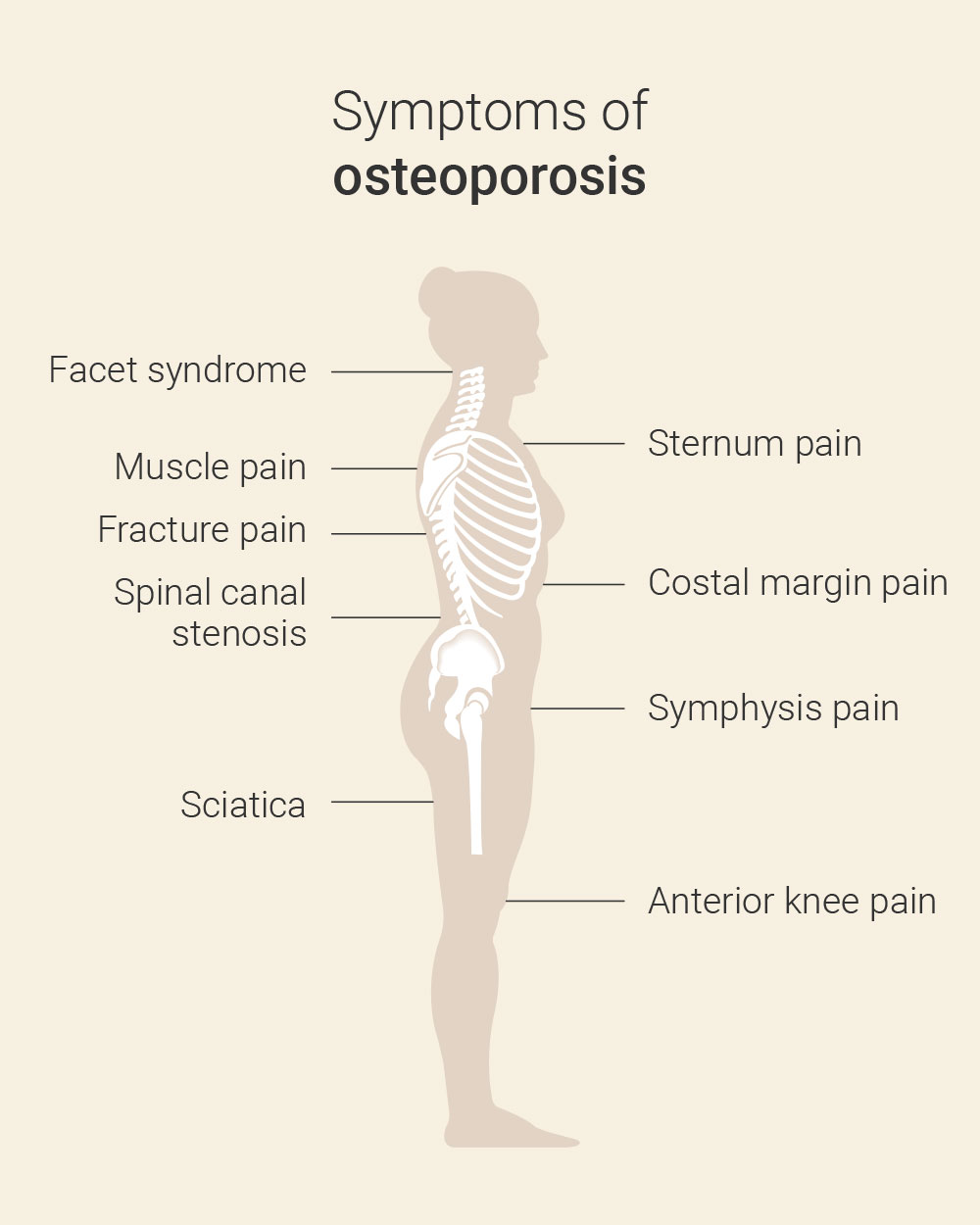Osteoporosis, a disease that is also known as the “silent thief of bones”, affects millions of people worldwide. Women after the menopause are particularly at risk, as are older men.
The question of whether osteoporosis can be cured weighs heavily on many people’s minds. In the following, we explain what happens in your body when you have osteoporosis and whether the disease can be cured.

What is osteoporosis?
Osteoporosis causes the bones in the body to lose mass and density. This can lead to an increased risk of bone fractures. Normally, the body continuously breaks down and rebuilds bone over the course of a lifetime. In osteoporosis, however, bone resorption significantly outweighs bone formation. This weakens the bones and makes them porous.
This disease typically affects women after the menopause. In this case, the hormonal changes accelerate bone loss. However, men can also develop osteoporosis, especially in old age.
What are the symptoms of osteoporosis?
Osteoporosis often progresses for a long time without symptoms. At an advanced stage, the disease can be accompanied by symptoms such as
- Back pain caused by pinched or curved vertebrae
- Loss of height
- Upper body leaning forward (kyphosis) or rounded shoulders
- Bone fractures that occur more easily than expected
- restricted freedom of movement

How is osteoporosis diagnosed?
The diagnosis is usually made with the help of bone density measurements, also known as DXA scans (dual X-ray absorptiometry). This special type of X-ray scan measures your bone mineral density and can detect signs of osteoporosis before fractures occur.
Typically, we perform DXA scans at our practice in Frankfurt on the areas that are most prone to osteoporosis-related fractures (e.g. spine, hips or wrist). The results of the scan are presented in the form of T-scores and Z-scores. A low T-score (usually -2.5 or lower) indicates osteoporosis.
In addition to bone densitometry, we can also carry out other tests and examinations as required to assess the risk of fractures and rule out other potential causes of bone loss. These include blood tests to check calcium and vitamin D levels. Sometimes further imaging procedures can also be useful.
Can osteoporosis be cured?
Osteoporosis is a chronic disease, which means that it cannot be cured in the conventional sense. This is because we cannot completely restore your lost bone mass. However, this does not mean that we are powerless in the face of the disease.
There are treatment options that can significantly slow down the progression of your disease. Therapy can also reduce the risk of fractures and improve your overall quality of life. These are the basic options available:
Medication
There are various active substances that we can use in our practice in Frankfurt to treat bone loss. These include, for example, bisphosphonates, hormone replacement therapies, selective estrogen receptor modulators (SERMs), denosumab and teriparatide. These drugs can slow down bone loss and reduce the risk of fractures.
Diet and nutritional supplements
You can actively support the treatment yourself with a balanced diet rich in calcium and vitamin D. In some cases, dietary supplements can also be useful to ensure that your body receives sufficient nutrients. We will be happy to advise you.
Lifestyle changes
Regular physical activity as well as weight-bearing and muscle-building exercises can support your bone health. It can also be helpful to avoid risk factors such as smoking and excessive alcohol consumption.
Fall prevention
As bone fractures in osteoporosis are often caused by falls, you should pay more attention to fall prevention. This includes measures such as improving your balance and adapting your living environment to eliminate tripping hazards.
Curing osteoporosis: Bone loss cannot be cured, but it can be treated well
Although we doctors are currently unable to cure osteoporosis, we can help you to cope with the condition using various treatment approaches.
We can help to slow down the progression of your disease and improve your quality of life. Early diagnosis and comprehensive treatment are crucial to minimizing the risk of fractures and maintaining long-term bone health.
We are here for you at our private practice for orthopaedics and traumatology in Frankfurt!
Image sources: 729644228 © Sascha | 49675296 © rob3000 | stock.adobe.com